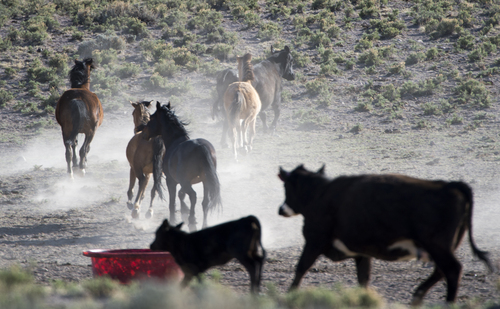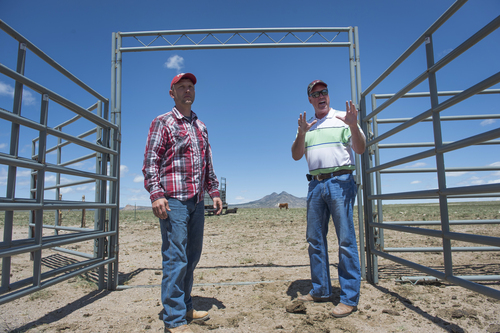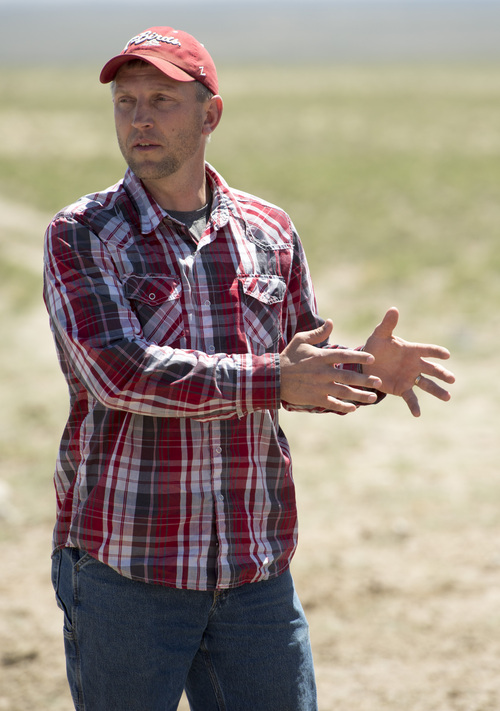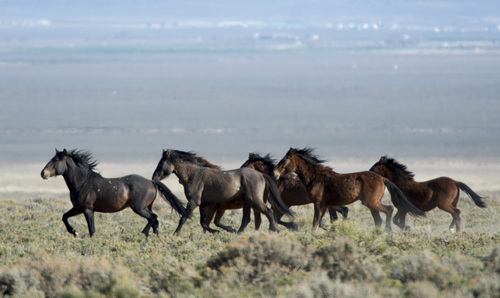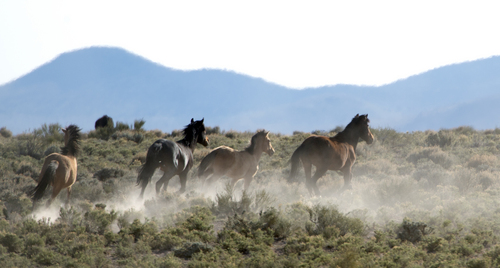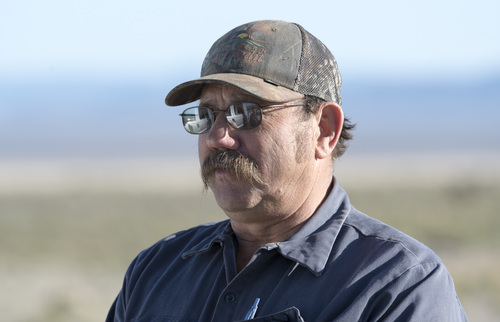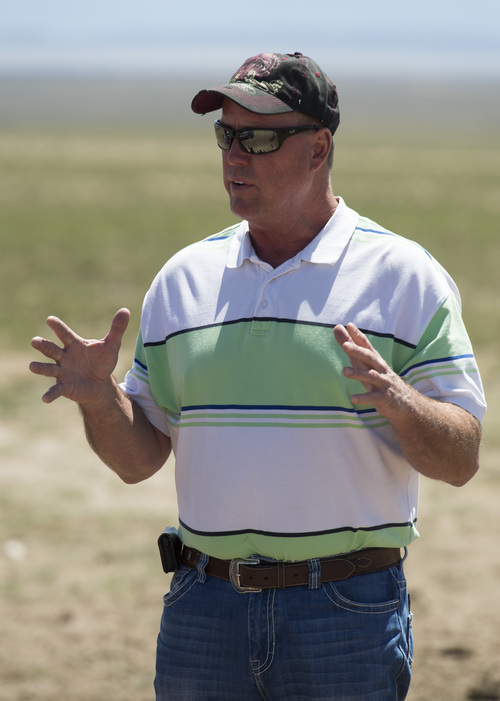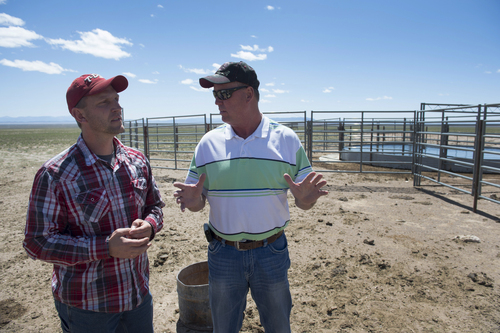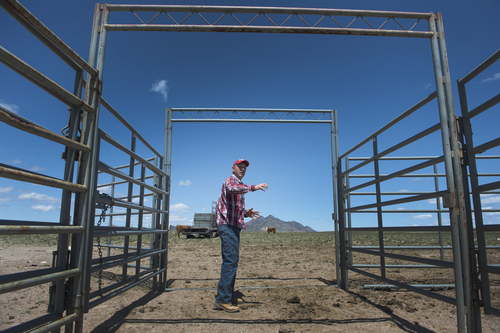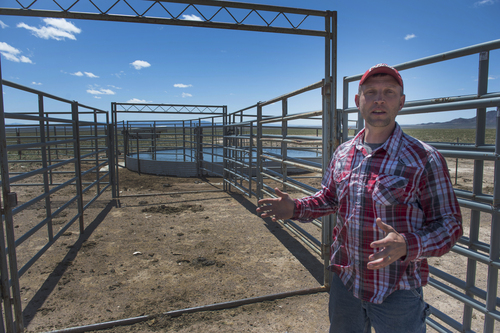This is an archived article that was published on sltrib.com in 2014, and information in the article may be outdated. It is provided only for personal research purposes and may not be reprinted.
Iron and Beaver counties will not round up wild horses on their own, as they threatened earlier this spring, but instead are pressing for a dramatic change in how the horses are managed.
They want the states, not the federal Bureau of Land Management, to decide how many horses can be on the range and what to do when there's an overpopulation.
A resolution to that effect, written by Beaver County Commissioner Mark Whitney, won the support of the Utah Association of Counties. He and a commissioner from Garfield County will next propose it to the National Association of Counties. That group meets late next week in New Orleans.
Meanwhile, Rep. Chris Stewart, R-Utah, is preparing legislation that would give states and Indian tribes the option to manage wild horses, much as they do other wildlife.
"This really is a political problem," said Iron County Commission Chairman David Miller. "We need Congress to get off their butts."
"We know that we've got to use a political platform to go forward on this," said Whitney, who previously had given the BLM a "drop-dead" date of July 1 to remove excess wild horses.
"The last thing we want to do is anything that would create tension or an uprising or vigilantes," Whitney said Tuesday.
The BLM agrees there are more wild horses on the range than the agency wants, but it had planned no roundups this year because there is no room in its long-term pastures. Nearly 50,000 horses already are stockpiled there.
Under pressure from ranchers whose livestock compete for forage and water and from counties such as Iron and Beaver, however, BLM Utah Director Juan Palma got permission to remove 200 horses this summer from the two counties.
Of those, 140 are to be removed from the Blawn Wash herd area, which is largely state-owned land in Beaver County. The others are being removed bit-by-bit as they come into water traps on private property in Iron County.
The Blawn Wash roundup likely will be held in late July, a BLM spokeswoman said Monday.
Suzanne Roy, director of the American Wild Horse Preservation Campaign, called the idea that states should manage wild horses "a ridiculous proposal."
"Wild horses are protected as part of our national heritage by an act of Congress. They are a treasured resource for all Americans," she said. "This is just more posturing by the states and by the ranchers. It's not a feasible or reasonable proposal."
Wild horse advocates believe the BLM is overstating the number of horses on the range, and that in any case, the agency should look first to reducing the number of livestock allowed to graze there. There are far more cattle than wild horses on public ranges.
Matt Wood, who ranches west of Cedar City, and Mark Wintch, who ranches in Beaver County, disagree that cattle are the problem.
The BLM's failure to control the number of horses is undermining ranchers' efforts to be good stewards of the land, said Wood. Unlike horses, cattle are moved frequently to prevent over-grazing, they contend.
"Livestock people have taken care of [the range] for hundreds of years, and now you have a federal agency doing their best to destroy it all," he said. "If I move my 200 cattle out and the BLM leaves the horses, they are going to finish wiping that grass out."
Wintch has grazing permits to have 350 mother cows and calves on BLM and state land in Blawn Wash this summer. But there isn't enough grass for him to use the permit at all, he said.
Because he's using pastures where he normally raises hay, Wintch said, he will end up having to spend $150,000 on hay for the winter.
But the rancher is supplementing his income in a minor way: He's hauling water to the wild horses on the parched Sulphur Herd Management Area, which covers almost the entire western side of Beaver County, as well as parts of Iron and Millard counties. The BLM is paying him.
Horses there, he said, are showing stress from the drought. "Their ribs are poking out. Their hips are showing," Wintch said.
Twitter: @KristenMoulton


